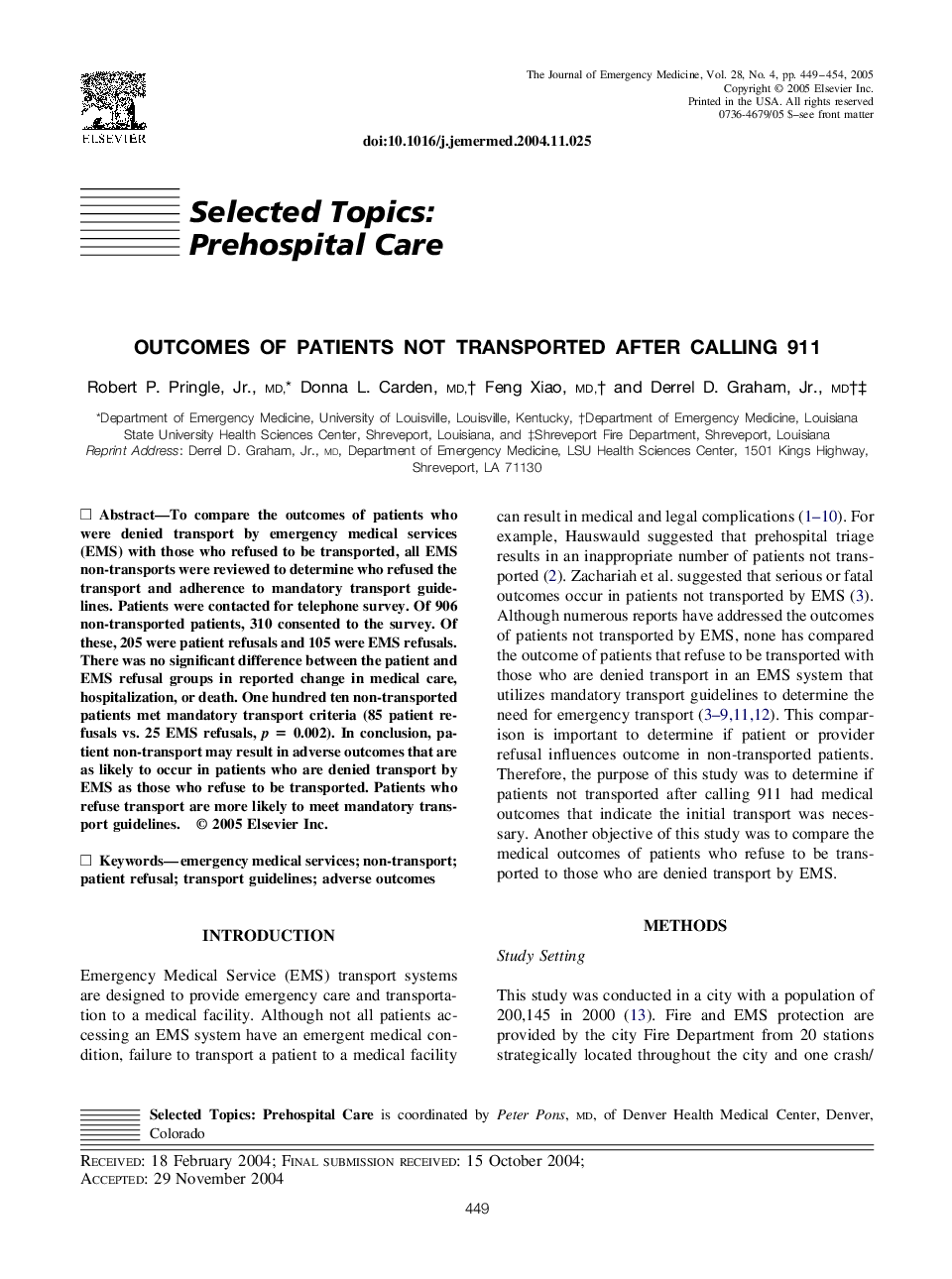| Article ID | Journal | Published Year | Pages | File Type |
|---|---|---|---|---|
| 10021758 | The Journal of Emergency Medicine | 2005 | 6 Pages |
Abstract
To compare the outcomes of patients who were denied transport by emergency medical services (EMS) with those who refused to be transported, all EMS non-transports were reviewed to determine who refused the transport and adherence to mandatory transport guidelines. Patients were contacted for telephone survey. Of 906 non-transported patients, 310 consented to the survey. Of these, 205 were patient refusals and 105 were EMS refusals. There was no significant difference between the patient and EMS refusal groups in reported change in medical care, hospitalization, or death. One hundred ten non-transported patients met mandatory transport criteria (85 patient refusals vs. 25 EMS refusals, p = 0.002). In conclusion, patient non-transport may result in adverse outcomes that are as likely to occur in patients who are denied transport by EMS as those who refuse to be transported. Patients who refuse transport are more likely to meet mandatory transport guidelines.
Related Topics
Health Sciences
Medicine and Dentistry
Emergency Medicine
Authors
Robert P. MD, Donna L. MD, Feng MD, Derrel D. MD,
